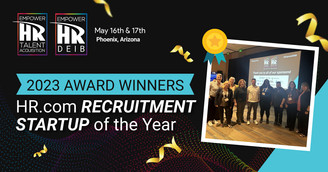In a previous post, I wrote about the transition from agency headhunting to corporate recruiting. But it was only when I first became a hiring manager (newly-minted recruiting manager), that I finally experienced a complete view of the hiring process. Only then did I understand the opportunity for better interview communication among candidates, recruiters and hiring teams.
As a hands-on recruiter, the goal every day is to attract and connect with the the best candidates for my given roles and the hiring teams I supported. Everything recruiters do – building pipelines, posting jobs, sourcing new leads and reviewing resumes – are to get the right candidates on the phone and to the next step of the process. Scheduling calls, talking to candidates and submitting candidates to hiring managers became a recruiter’s daily output.
As the hiring manager, other than writing the job description and the kick-off meeting, a recruiter’s candidate submittals (aka write-ups) are the manager’s initial input for hiring decisions. Managers don’t usually see the ~100 applicants who applied but were declined, or the ~ 10 candidates that didn’t pass the recruiter’s phone screen. While hiring managers don’t have time to review every applicant, I realized there’s incredible candidate intelligence (context) that is privy to recruiters, but absent from hiring manager decisions.
This information gap might save managers time, but makes it difficult for hiring managers and recruiters to align around daily recruiting activity, candidate calibration (how candidates stack up) and the available talent pool.
A recruiter’s write-up helps managers understand a candidate’s salary expectations, reasons for exploring new roles, work authorization and the recruiter’s perception of a candidate’s strengths or weaknesses. But as a first-time hiring manager, now on the receiving end of candidate write-ups, it struck me that written phone interview summaries didn’t provide me with tangible interview intelligence to make a go or no-go decision.
Even when I trusted our recruiter’s judgement (since we were on the same team and I hired them), reading a candidate phone screen summary made me ask myself..
- What other information and data from their conversation am I missing?
- How did the candidate answer the questions that were asked?
- What stories did the candidate tell?
- What specific technical examples did the candidate articulate?
- Does the recruiter truly understand a good vs. great answer when they hear it?
So I did what hiring managers do.. schedule another 30 minute phone conversation to ask similar questions and hear a candidate’s answer for myself. However, this always felt like extra work, slowed down the process and kept us from immediately inviting the best candidates into the office.
This was the moment I realized something was missing from today’s screening and submittal process – actual evidence and insights. I feel the whole point of interviews is to gather intelligence to make more informed decisions. The problem is that interviews today, even with notes and written summaries, interview conversations take place in a vacuum and the answers and insights are only heard by one person. Why is this the norm?
Written summaries introduce another gap between what a candidate said and what is read by a hiring manager.
Even after two or three interviews (60-90 minutes of rich conversations) by a recruiter or the interview team. It’s no-one’s fault, but a matter of insufficient interview technology and an opportunity for enhanced interview communication. While the candidate experience is important, we must not forget the hiring manager experience. (Thx++ Lever)
At Honeit, we’re excited to improve interview communication, by enabling interview teams to ask the right questions and then share real-time interview intelligence from live conversations. Instead of sharing our perception of what took place on a phone interview, it’s finally easy to share a few audio highlights with subject matter experts and hiring leads to determine good vs. great answers and get the best candidates on-site faster!
Learn more or sign up at Honeit.com



